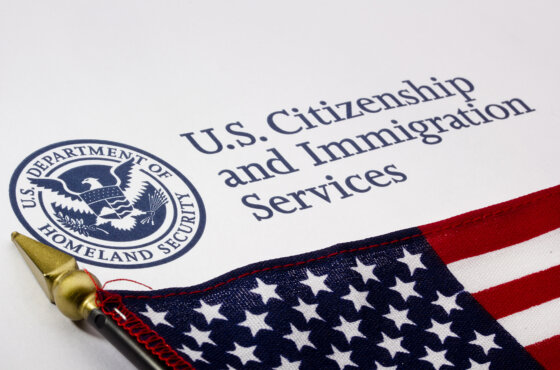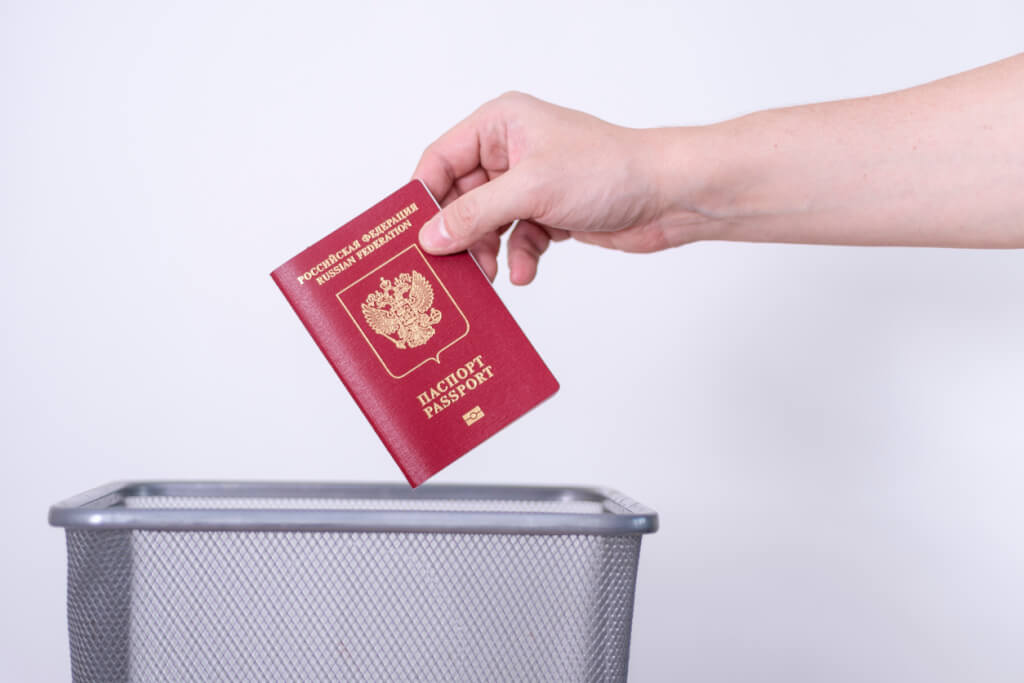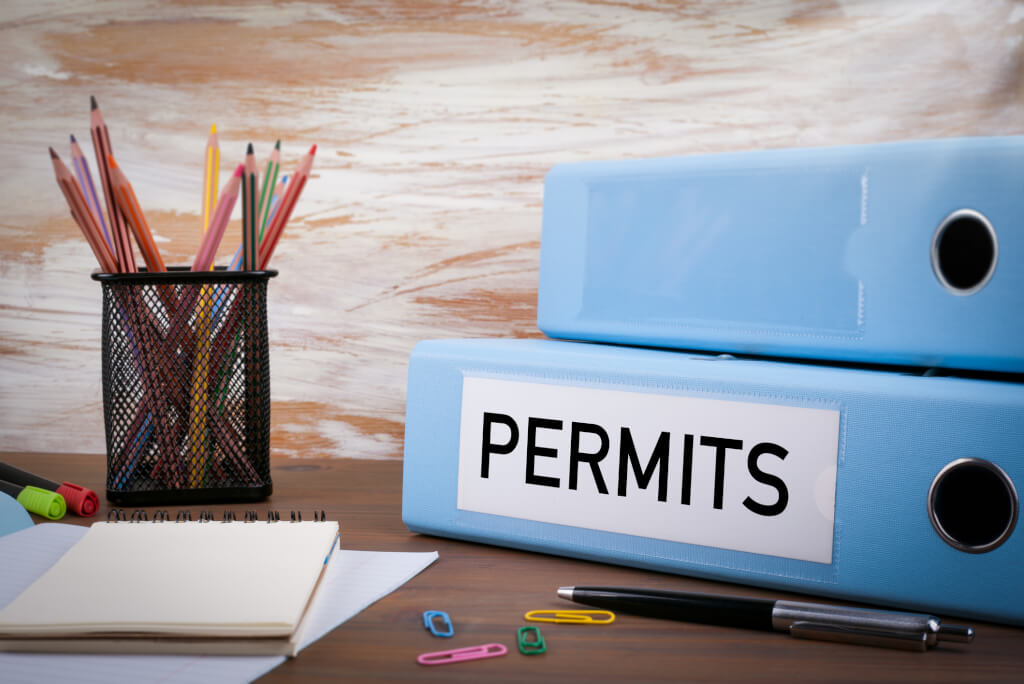Athos, Porthos, and Atheist: Stories of Three New-York Homeless People from the Former USSR
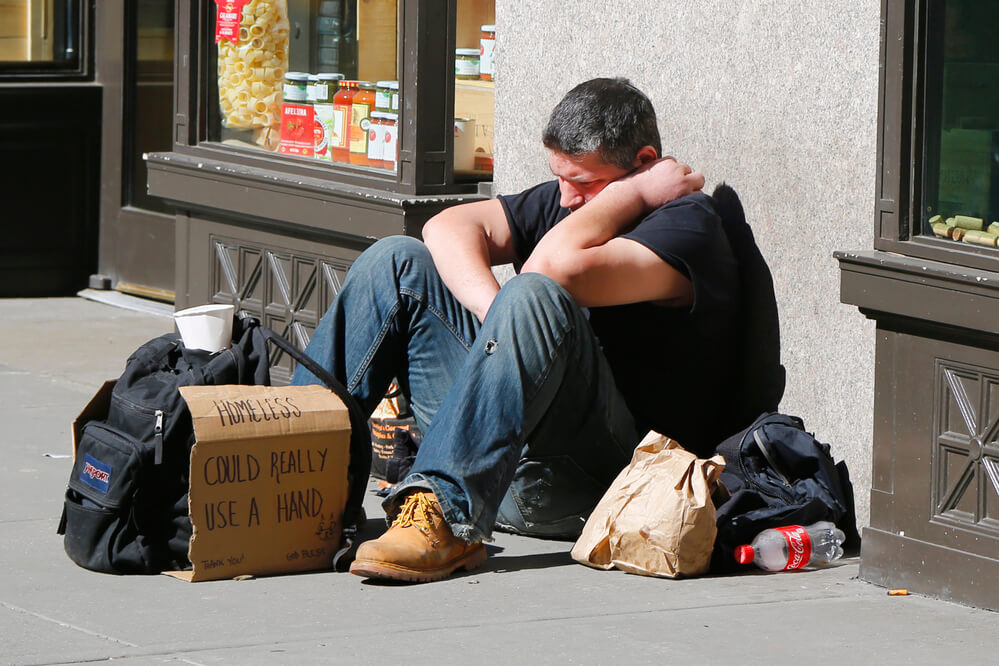
Photo: Depositphotos
One day, as I walked out of Sheepshead Bay station and noticed a beggar sitting at the door, I decided to get rid of a pound of coins in my pockets and poured them noisily to his glass. The man probably felt how heavy it became and nodded to me happily: “Such a lot of money! Do you want a coffee?”
Those who never lived on the street must have tons of fantasies about circumstances under which you end up being homeless. We tend to think that people who stand near subway stations with glasses and boxes are most of all undereducated, have no relatives who can help them, are lazy and unorganized, and have ended up on the street because of alcohol or drugs or after a prison, or that they speak no English, after all. Or they do not want to work.
Well, those are just our fantasies. Real Brooklyn homeless persons have nothing to do with it.

Real Brooklyn homeless people will change your opinion about those who live on the streets. Photo by Nata Potyomkin.
Story #1: Sasha the Conductor
Age: 52.
Education: Kyiv State Conservatoire’s schools of conducting and opera signing. Before leaving for the U.S. he used to work in Kyiv and sing in Children’s Opera Theater; was a conductor of Kyiv Philharmonic Hall.
Status: Illegal immigrant of 17 years.
Citizenship: Ukraine.
Family in the U.S.: No.
Children: Live in Ukraine.
Alcohol: Moderate consumption.
Drugs: No.
English: Very poor.
Homeless: For 3.5 years.
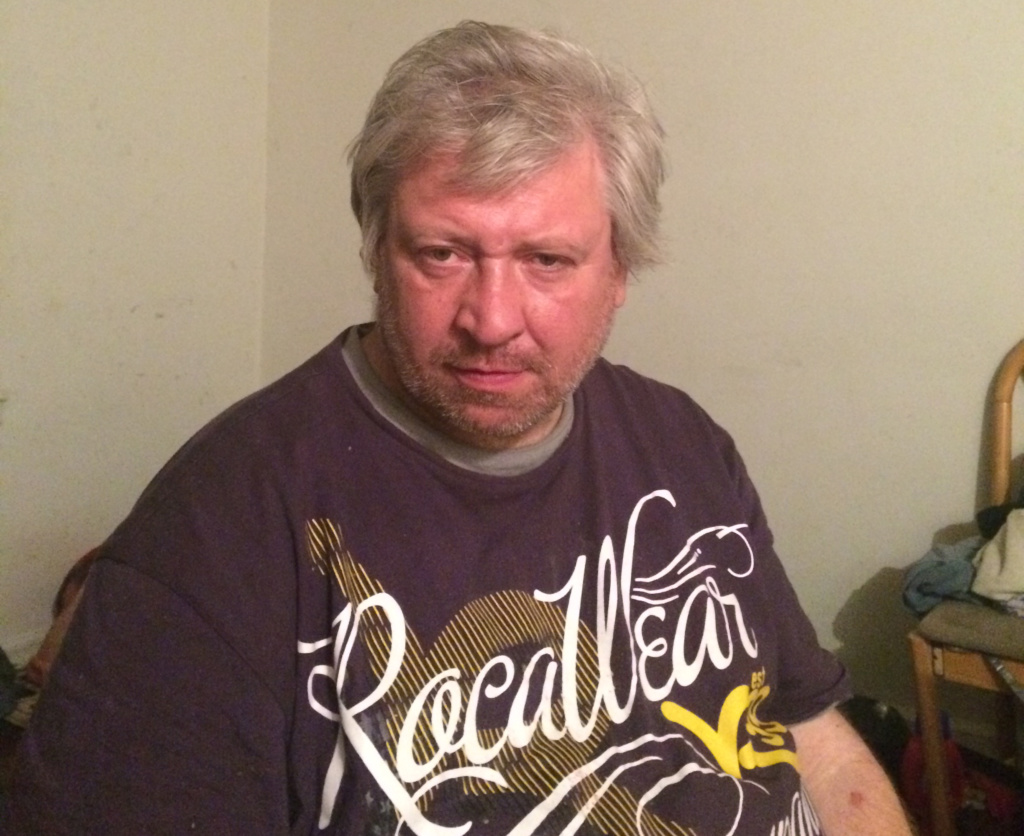
“I might be looking bad today. Well, Repin was drawing Musorgsky before his death.” Photo by Nata Potyomkin.
Sasha left for a concert tour in the United States knowing he would not come back. He lost his family in Uzhhorod, Ukraine (they fell victims of a murder), and his attempt to find the truth from the prosecutor’s office ended up in broken teeth and bodily harm.
He came here as a conductor of a symphonic orchestra that toured 42 states during almost a year.
After that he extended his visa and obliged to leave the country within 4 months. Without buying a return ticket, on purpose. The money he earned touring, $8,500, he sent back home. Sasha has no desire to return to his home country.
“I ended up on the street after a chain of unlucky events. The first of them was my construction supervisor shafting me for more than $5,000. He was a husband of my classmate, and I felt embarrassed to tell her he didn’t pay me for my job, so I didn’t. Anyway, he taught me how to lay tiles and other construction jobs. But still he shafted me. So I ended up in a t-shirt and shorts in December (my clothes were left at the construction site) without cash. I rented a room at Brighton 5th. Then I broke my leg at the boardwalk. I simply stumbled. Then I was kicked out of my room by the landlady. Why? Because I refused to cook borshch for her at 3 a.m. She’s a bit sick, she didn’t know what she was doing. I turned to church for help. They said: “You haven’t showed up for a while, you must have been drinking.” I haven’t, but how could I prove it?
“Since then, since 2014, I’ve been living like this: either on the street or in Coney Island hospital.”
Early during his stay in the country, Sasha rented a room in Seagate and worked in a restaurant kitchen in Brighton. Then he got a job at a construction site. He really wanted to work in a theater or an orchestra but he couldn’t without documents. The only option was some ‘black’ sites. He consulted an attorney regarding his status but the attorney took the money and never achieved the desired results.
“I used to work on a ‘stock market’ (an undercover stock market for illegal residents — FD) and earned some $5-$6 per hour. And it was all about crimes: I once saw a man, a black American, being shot dead there.
“Physically, I am not able to work for more than 2 or 3 full working days. I suffer from diabetes and get extremely tired of physical work. However, they would still help in the hospital, even without my status and documents, because… Well, once I just got lucky and they accepted me for treatment because of their good heart. But I fell victim to bed bugs; the conditions were terrible, and I turned to brother Vadim. He worked in the church, helped homeless people, and found a different hospital for me.”
Everyone from the Brighton homeless scene speaks well of brother Vadim. They say they are alive thanks to him.
Sasha started drinking after he ended up on the street. The life of New York homeless people is different from that of Florida homeless for climate reasons.
“Alcohol? I will tell you why we drink. You know the weather in New York? Frosty rains, winds, floods under the bridge, that brass monkey weather. Sometimes you fall asleep — and then wake up covered in ice water. You need to drink in order not to freeze to death. Some did die. I saw an Italian man die, a successful attorney in his past. He was an alcoholic, though, who fell asleep under the bridge and never woke up.”
As of the date of publication Sasha and other people featured in this story occupy a social apartment of a person who has recently died in a hospital. They know this will not last long. As soon as the municipal authorities realize the residence is free and might be taken, the men will end up on the street again.
“I live catch-as-catch-can. If they offer a job at a construction site, I might as well work for several hours per day. I do not get healthier with time, though. Thinking that I could have earned a retirement if I wasn’t an illegal immigrant is not easy, you know…”
One of Sasha’s key income sources when there is no construction job is begging near a road.
It’s possible to count how much he earns this way: from 56 cents to $150 per day, but it needs to be counted by weeks as it’s not possible to go outside every single day. It depends.
“Some cases are just unbelievable! Once a man gave me $5 and then returned to give me $5 more!”
17 years of being an illegal immigrant is next to hopeless. However, Sasha keeps a business card of an attorney and hopes he might try and do something.
“I don’t complain, you know. I hate complaining and asking for help. The street is a shelter. It unites those people who do not complain and do not beg. This is why people there help each other gladly without hinting. You know, there are some funny moments. Once we heard a radio sound from a car, a Russian-speaking radio, and they were discussing spring. And someone said that spring is when homeless people show up under the bridge.”
When he was still a church member, Sasha volunteered to teach singing to children from Sunday school. For food, clothes, and household assistance. Many homeless people work for the church for free, as a compensation.
Sasha hasn’t drunk up his singing professionalism. He can still sing an opera aria beautifully. But he does it much more rarely. No mood for arias, you know.
Story #2: Viktor Litvinenko, aka Vitya the Painter
Age: 38.
Education: Grekov Odesa School of Art, school of painting.
Status: resident, green card holder.
Citizenship: Ukraine.
Family in the U.S.: Yes.
Children: Live in Ukraine.
Alcohol: Rehabs and detoxes in the past, for 8-9 times.
Drugs: In the past.
English: Advanced.
Homeless: For 4 years.
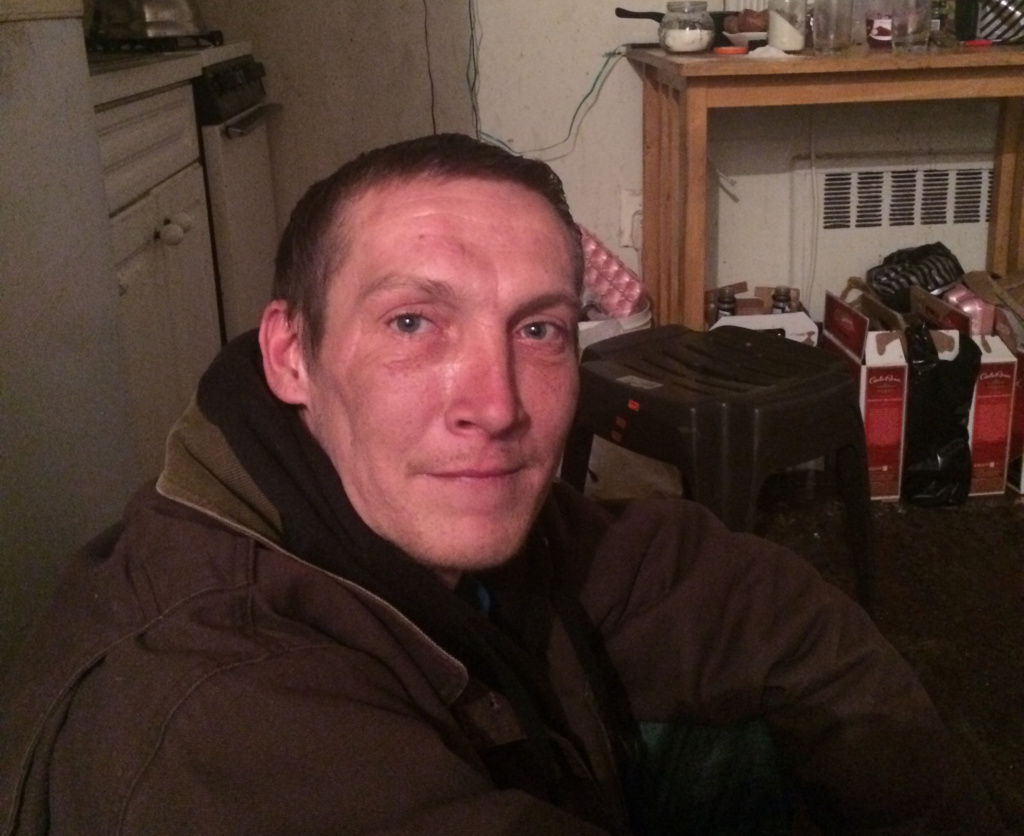
Photo by Nata Potyomkin.
He came to the U.S. on a fiancé visa, got married, and received his green card. Then he ‘zoned out’ and lost his green card. Answering a question on why he didn’t restore it, he says briefly and clearly: “Because I’m a moron.” The green card was presumably stolen from his backpack together with other IDs and a library card.
He got in a row with his mother-in-law and left home. He constructed a church in Maryland, painted icons, and worked as a carpenter. Then he returned to New York, got into a detox; lived in the church at brother Vadim’s place (the same brother Vadim), and taught painting in Sunday school. He played Russian rock music and songs by Vladimir Vysotsky on a guitar on the street, and worked at a construction site.
“I’m a great puttier, by the way. I puttied in the home of Demi Moore in downtown Manhattan. My boss wouldn’t have sent some other guy to Demi Moore, he chose the best worker.”
Vitya’s life in America has seen many ‘occasional’ events and periods. He drank and worked ‘occasionally.’ He returned to senses and then relaxed ‘occasionally.’ Trying to describe his journey to the category of homeless people, he remembers a dorm first, then a church, then the streets. And the rehabs, of course.
“There was a period when I drew portraits at Union Square. They were good, but I worked too slow. And I wanted more money. So I would take cocaine and methamphetamine to work faster. I got hooked real fast. Then I would leave the drugs off with the help of alcohol. The money I earned for drawing would all be spent on cocaine. I had a friend named David, a painter. He told me that amateur painters have their exhibitions in Manhattan every summer, and he decided to help me to show my works there. But I only have graphic art pieces here in America, pencil works. And I would like to show my paintings, which I made only three pieces over 6 years here. I have sold them. Why so few? I don’t know. It’s just the way it is.

“I sold this sailing ship to Aunt Sveta who worked in a canteen in the church where I lived.”
“You know, some people here are really sick. I called 911 for them to be taken away to hospital in order to save them. I remember two people sitting and hugging; one of them died right here on the street, and the second one on his way to ‘Stables’ (locals’ nickname for Coney Island hospital — FD). Sometimes our people get beaten up or poisoned. I myself was forced to fake a fall, a sprain, or a broken bone just to be admitted to the hospital for some time so that it looked like an emergency. Some are lucky, the other way round, but this doesn’t affect their life much.
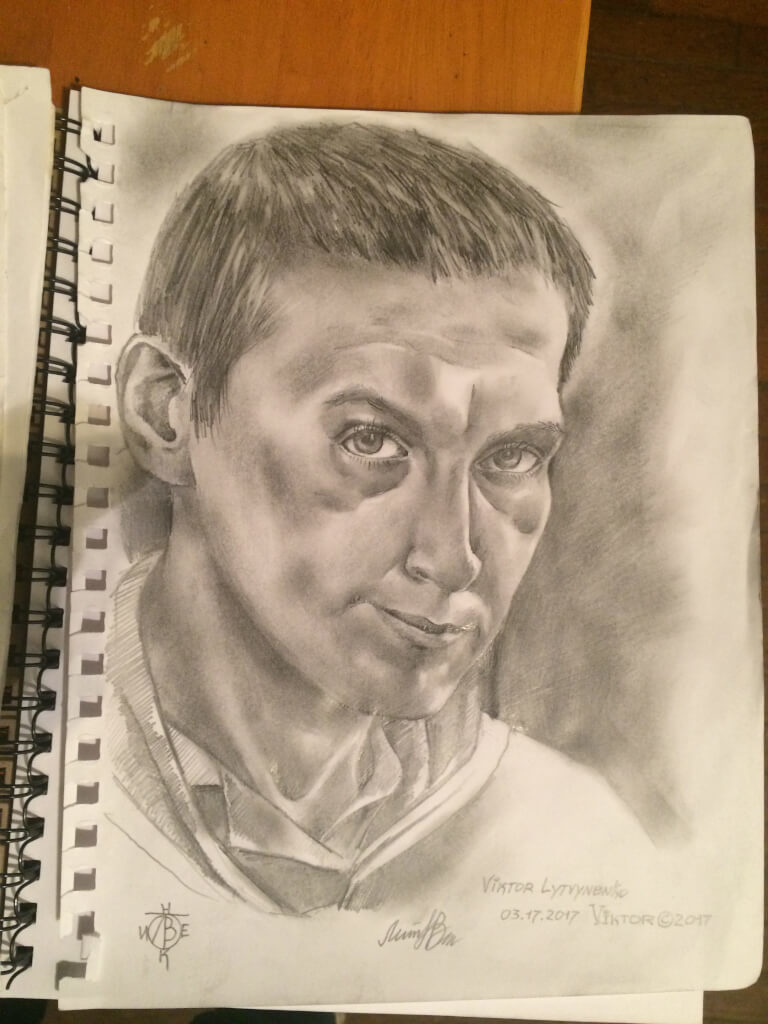
Self portrait.
“One couple from among our people once found a wallet on the street with $30,000. They could have lived with that money for a year! They could have invested it to earn profits! But they lost it all within a month. And they still lived on the street during this month. It’s a type of mindset. Sometimes after a detox you ask your friends to take you to a different state and never show you Russian people, or you do it again… There was one millionaire here. A married guy, by the way. A jeweler, he was making decent money. His wife and kids would bring him food to the board (boardwalk for homeless — FD) when he was drinking and ending up on the street. And then he would return to his jewels and money. It was his lifestyle.”
Story #3: Konstantin ‘Kevin’ Musienko, aka Kostik the Poet
Age: 39.
Education: Microsoft certified computer engineer (A+) in the U.S. and Belarus; Minsk Polytechnic College.
Status: citizen of the U.S.; citizen of Belarus.
Family in the U.S.: Yes.
Children: No.
Alcohol: Yes.
Drugs: Far back in the past.
English: Fluent.
Homeless: For 9 months.
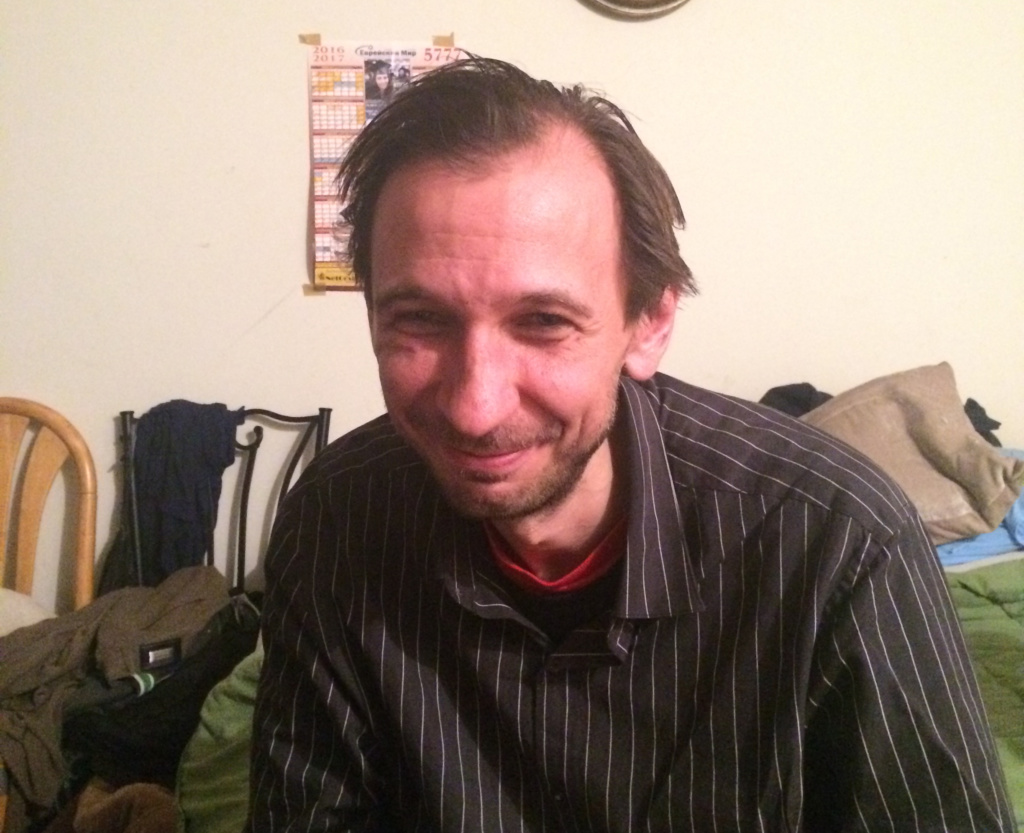
Photo: Nata Potyomkin.
“It all started after Hurricane Sandy. Before Sandy, I used to work normally in an office as a computer specialist. I know my job, I love it, I know programming. When I was an office worker, I used to write poems in my spare time. When Sandy came, I had about 400 verses. I rented an apartment in a basement; this is why I lost everything. Can you visualize Sandy? EVERYTHING is flooded. All manuscripts. All my belongings. It was so… wrong. My only thought, my feeling when I saw it all was ‘This was so wrong.’ Three months later, my father died in a hospice. At first I was doing something — I found money to organize a funeral and buried him. He and my stepmother owned an apartment. She claimed it right away, and I didn’t want to fight with her. My mom and brother live in New Jersey, but we’re not friends. I haven’t talked to them since 2008. And never asked them to help me. All of us here are the same — we do not like to ask for help.”
After the flood Kostya stayed in his friends’ place as he could not afford renting an apartment. An apartment rent in New York means a monthly rent payment plus a deposit, which is double (or triple) monthly rent payment. Sometimes it’s difficult to find this money. After his father’s funeral Konstantin got depressed and didn’t want to live. He got fired from his office job and worked as a traffic controller in cargo shipping.
He then got in a street car accident and broke his hip; he spent some time in a hospital, was discharged… and haven’t been doing much ever since.
“People end up on the streets from dorms, it’s a law. Neither money, nor English, nor citizenship or relatives can help you.”
“The logic is that you need a lot of money to rent an apartment, all at once, and in the dorm you pay daily. You have 10 bucks — you have a place to sleep. It’s the first step to the street. Then it’s the last floors of buildings, sleeping under the roof, and you don’t know where to go. On the streets, I mean it, people respect you! And if you’re a normal person and are ready to help — they will help you. And you fly into a rage: how sweet, they are helping me, they value me! No one will hurt you. They will give you some vodka. Tell you where to sleep. It’s as easy as ABC — finding vodka on the boardwalk. All you need to do is to walk along. That’s how it happens.”
Kostya didn’t live in the church because he’s an atheist. He divides people into two categories: ‘street’ people (who are eager to help, give him a dollar, etc.) and ‘just’ people (those who might do anything). He says the street is a great teacher of humans: he learnt not only how to figure out who to ask for money or a cigarette, but also how to tell a weasel.
“It’s a contrast with the society in terms of no need to prove your wealth, to have money, to be someone — here on the boardwalk they love and accept you by default. This is why we’re here.”
By the way, he wants to work in his degree field. If he temporarily stays in a place where he can take a shower, he starts sending out his CV — if he gets called for an interview, he won’t have to go there stinky.
Who helps them
New York homeless people have three sources of assistance.
- State assistance — shelters
It’s both convenient and not. It’s inconvenient because you cannot bring in any kind of food, even some juice, and you must abide by strict timetable — come before 9 p.m., check in and check out, walk in column… Street people don’t like it.
At first, all those we spoke to say that there is little help from the government, but then they remember that welfare, food stamps, and Medicaid are still helpful. (“$120 every two weeks and $194 monthly for cold food, and you have nowhere to cook,” says Kostya.)
- Church in general, Baptist church, and synagogue in particular
The church coordinates special stations; our characters are well aware of at least four of them in Brighton. These stations offer food, hot coffee, dry clothes, take-out food and meals. Each of them operates two days weekly with different schedules so that people are able to eat and change clothes every day. The shelter at Ocean Pkwy is open Tuesdays and Fridays; the station in the Georgian Orthodox Church at McDonald & Stillwell serves pea soup on Mondays and kharcho soup on Thursdays.
- 34 Manhattan Str., at the corner of Macy’s
On Fridays and Saturdays, at midnight, Baptist volunteers bring and distribute pizza and other food, personal hygiene items, underwear, socks, clothes, deodorants, household detergents; they take everyone’s promises and never ask questions. If you say you must take food or clothes for several friends, they will give you as much as you ask.
What homeless people propose based on their assessment of the situation
“We have a couple of proposals on how to solve the problem of the homeless,” Kostya says. “First they need to assess a person and his/her desire to return to normal life. They kind of do it, but! They use some weird tables, and they do it just to decide whether to allocate a free apartment for a person or not (about $120, a two bedroom apartment for a single mother with kids — FD). A friend of mine who works as a psychologist for the homeless people told me once: ‘We can provide an apartment (there are many of them under the ‘affordable accommodation’ program), but the multiple choice test, which is 10 or 12 pages if I’m correct, is designed for people who have been living for at least three years on the street, which is unacceptable.’
“Then you have to deal with a person’s addiction, for instance, through Detox, Rehab, etc. But New York lacks modern methods, and most people return to their addiction after the treatment. I’ve heard tons of stories like ‘You know where I went right after the rehab? To buy alcohol and cigarettes!’ And this is said with extreme pride. Like ‘See, how good I am? I’ve beaten their brainwashing system! I haven’t given up!” Here in New York they don’t try to demotivate you from drinking. They simply brainwash you using the same method. I have ideas about how to do that, but it’s worth an academic paper. A person should be provided with accommodation only after successful treatment.
“It’s also important to wean the addicts off of psychological habits: to pick up cigarette butts, drink on the street, speak street slang, both Russian and English, and so on. For that, a person should be placed in specially tailored conditions that will make him want to get rid of those habits. I don’t think it’s easy, but it’s possible.”
A posteriori
New York Police
Has the right to arrest homeless people but rarely does that. It loathes doing it.
Deportation
The so-called ‘friendly deportation’ is when friends chip in for a ticket to home country for a homeless person if he or she is willing to leave.
Legislation
It’s widely accepted that all laws that read as if they were ‘against’ the homeless people have been in fact designed not for physical liquidation of them but for making them go to shelters.
The laws of California ban people from sleeping in trailers and minivans. The state also turns the water off in fountains so that homeless people don’t wash in them. In Sarasota, Florida, the authorities are taking away all benches. Each state does its weird things in this regard.
However, there are some services aimed at correcting both legislative and mental discrepancies regarding homeless people.
Some organizations with national state status are aimed at solving the homeless people’s problems and take care of their health.
In the state of New York, you might read the laws or you might move around the city and see the picture with your own eyes. No one prevents begging in the subway, both inside the trains and on the stations; crash pads are not regulated by police (although in theory, they might kick homeless people out if asked by owners). As witnesses say, no one in New York City cares about homeless people, in both positive and negative sense of the word ‘care.’
Подписывайтесь на ForumDaily в Google NewsХотите больше важных и интересных новостей о жизни в США и иммиграции в Америку? — Поддержите нас донатом! А еще подписывайтесь на нашу страницу в Facebook. Выбирайте опцию «Приоритет в показе» — и читайте нас первыми. Кроме того, не забудьте оформить подписку на наш канал в Telegram и в Instagram— там много интересного. И присоединяйтесь к тысячам читателей ForumDaily New York — там вас ждет масса интересной и позитивной информации о жизни в мегаполисе.







